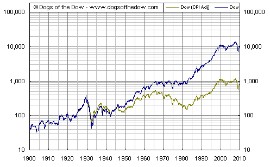Japan-US Summit: Progress on TPP Participation Conditions
Regarding the issue of North Korea’s nuclear weaponry and missiles, they agreed to cooperate and work toward a resolution that includes policies that will take “resolute measures” and sanctions made by the UN Security Council, which will strengthen their alliance in protecting the security of the Asia-Pacific region.
As the prime minister emphasized when he said “[he was] able to declare with confidence that [they had] restored the bonds of friendship and the trust between Japan and the U.S.,” the significance of continued cooperation between Japan and the U.S. is great. However, in regard to the pressing issue of the TPP, this was merely the entrance to participating in future negotiations.
In a press conference after the summit, in addition to explaining the issue of participating in TPP negotiations to the ruling party, the prime minister also explained his plans to entrust the government with the matter, stating that “[he] would like to take a decision at as early a time as possible.” It would be good for the prime minister to recognize the exception of tariff annulments as a condition for participating in TPP negotiations and see how well prepared the environment is for participation. In the one problem dividing public opinion, providing a polite explanation to one’s citizens and obtaining their understanding is necessary when making decisions.
The joint statement issued by the Japanese and American governments affirmed a rule that “should Japan participate in the TPP negotiations, all goods would be subject to negotiation.” On the other hand, they “[recognize] that both countries have bilateral trade sensitivities, such as certain agricultural products for Japan and certain manufactured products for the United States.” Finally, on top of that, they decided that “the final outcome will be determined during the negotiations.”
The importance that Japan places on excluding the elimination of tariffs has shown us one definite thing: American representatives who wish for Japan to participate in the TPP are, amidst their firm opposition against concentrating on agricultural workers, concerned that Prime Minister Abe will be forced to make harsh decisions.
However, one wouldn’t normally think of guaranteeing items for exception prior to negotiating in high-level trade liberalization like the TPP. On the contrary, they would have been obligated to eliminate tariffs on all items. One could say that when the joint statement stated that everything would be decided in the negotiations, it was simply reaffirming the standard of negotiations.
That means that, this time, nothing about the TPP was decided. If Japan is to participate in negotiations, then it should expect strict decisions from agricultural powers like America and Australia. For a country joining the TPP this late, just how many requests can it expect to make? We should encourage discussions that explicitly and thoroughly state the merits and demerits of participating in negotiations.

